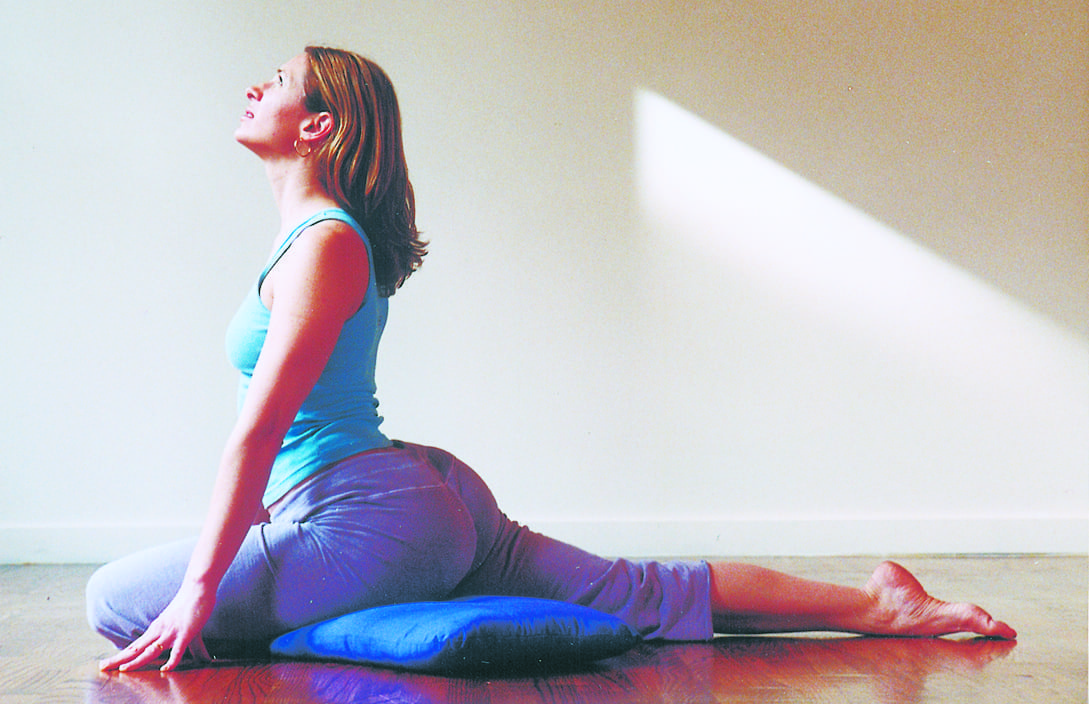You’re mostly made of water, says Cyndi Lee, so why not act that way?
Yoga students frequently ask me what they should feel in this pose or that pose. Although every yoga asana is very precise in how it activates certain muscle groups, heats up and purifies inner organs, and creates specific energetic circuits that affect the nervous system in beneficial ways, I don’t know exactly what you should be feeling. I can tell you whether your body is aligned properly, or if you’re overworking one area of the body. Sometimes I can point out when your attention is too intense or too wild, and I can give you guidance in letting you know if you are placing yourself in a potentially injurious position. But I cannot tell you what your own sensual or emotional experience should be, except that it should be completely personal to you.
Many people actually prefer to be told what they should think or feel or believe, but yoga and meditation doesn’t do that for you—and a good teacher won’t do that for you either. We’ve all heard, “No pain, no gain.” Some people think that if they don’t feel anything intensely they aren’t getting the full benefit of the pose. But if you’re alive, there is no way you’re not feeling something. It takes being quiet, paying attention and opening to movement to find out what we’re feeling.
All of us rock back and forth between the tendency to hold on to ideas, experiences and emotions, and the ability to glide through the changes of our life. One reminder that can be helpful for being more fluid is to recognize our own watery-ness. We are also made up of earth (no wonder we get stuck sometimes), air (can’t make a commitment?), fire (sometimes passion helps), and space (ahhh…). But an overwhelming percentage of our physical make-up is water.
Right now feel all the parts of you that are wet. The moistness of your eyes, the sweat on your skin, the saliva in your mouth, even the interstitial fluids deep inside. Water is moving within and without us all the time. We take showers, get rained on, go swimming, and it’s recommended that we drink six to eight glasses of water a day. Then more water comes out when we go to the bathroom. Although we don’t often contemplate these personal and universal rivers, when we do, we realize that a large part of our existence is involved in the endless flow of water.
The physical practice of yoga is a system designed to enhance the natural flow of water, as well as various energies, in our body. You might look at a yogi performing an asana and think they are perfectly still. But they are actually paying close attention to intricately shifting movements inside, and they’re making small adjustments. The practice of yoga is not really about perfecting any body shape or attaining any previously held experience. The yogi looks for the middle way between responding to inner movements of body, breath and mind as they are happening, and simultaneously working with an understanding of how to use alignment and effort to gain the most benefit for that situation.
Yoga means “union,” so it is truly not about any one thing, but always about relationship. Relating to waves of movement is what allows us to stay steady and sustain balance. The word “balance” comes from the Latin balare, meaning “to dance.” In yoga, we call this little balancing dance “pose” and “repose.” We yogis do this with every breath during our yoga practice so that eventually yoga is a practice of resting within movement and transition. It is a way to tap into the river of all life as it flows right now through our own body. Water is the reminder, but when we work this way our practice is also about movement of headaches, crabbiness, worry, sadness, stiff shoulders, joy and lunch.
You know what happens to water if it stays still—it either turns into ice or becomes brackish and unhealthy. The same thing happens when we try to latch on to a prescribed feeling or experience in yoga practice—or in any other situation. If we can only relax a bit we will see that our feelings, both emotional and physical, are flowing all the time. It never ceases to amaze me how I can begin my yoga practice with a heavy heart or a cluttered mind, and by the end feel refreshed in every way. The practice washes me from the inside out and I feel back in balance.
It’s fun to think of your own body as a tiny part of the whole world of tides, rains, rivers and other people’s ninety-percent-water bodies. Can you let your body be the water bed that your heart and mind rest on? Then ask yourself, when was the last time you drank a glass of water?

